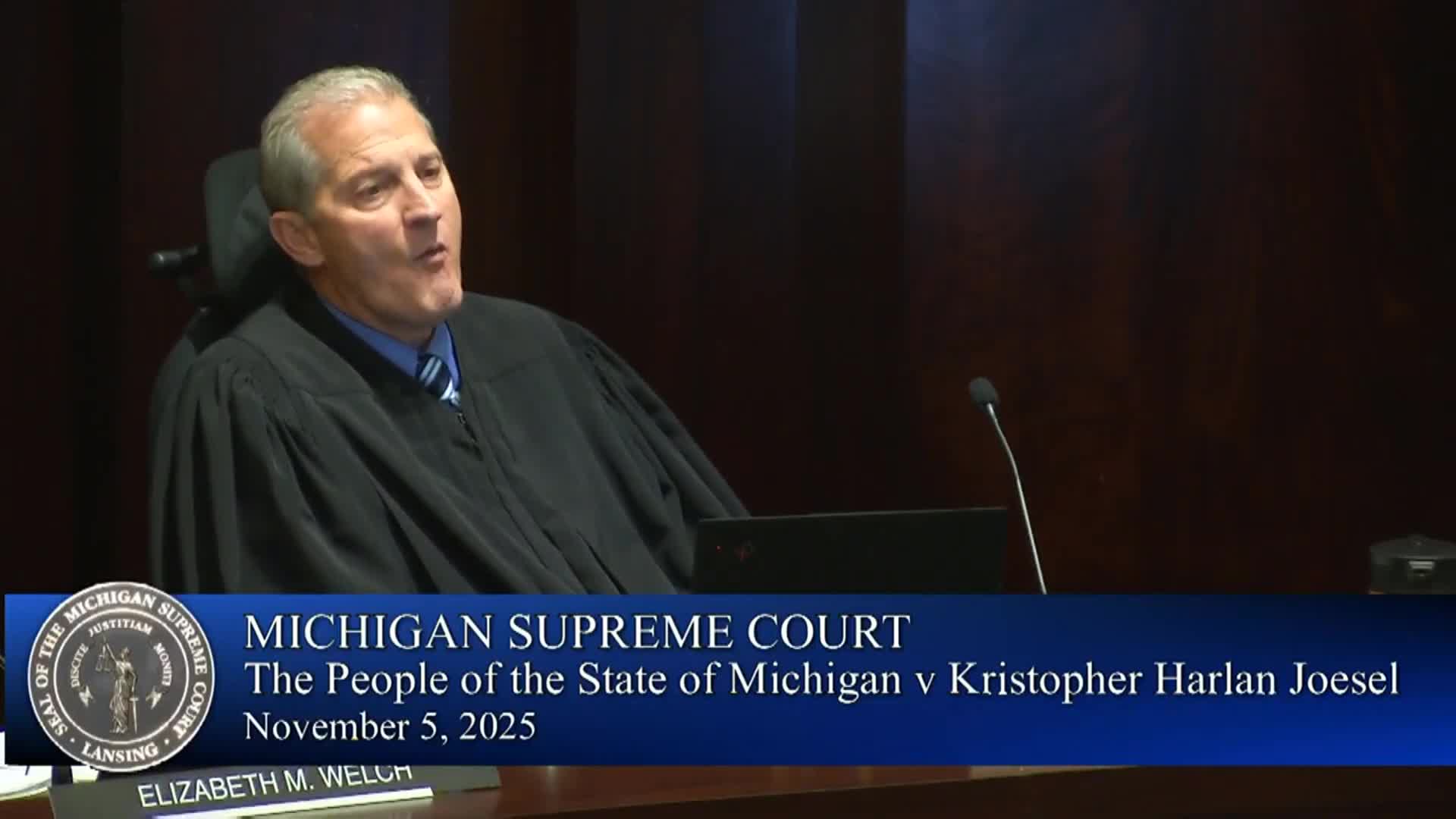Justices question scope of post-death restitution for lost future earnings in Joesel argument
Get AI-powered insights, summaries, and transcripts
Subscribe
Summary
Justices questioned whether Michigan restitution statutes permit awards of lost future earnings to a deceased victim's estate during oral argument in People v. Christopher Joesel (No. 167705).
During oral argument in People v. Christopher Joesel (No. 167705), counsel and justices addressed whether Michigan restitution statutes and the Crime Victim Rights Act authorize an award of lost future earnings to a deceased victim's estate. Appellant counsel Brett Cobb urged the court not to accept "the government's invitation to read in this extra statutory right to restitution for lost future earnings," calling the request "unusual." Cobb cited the court's recent Daucher decision and argued that, while the legislature knows how to list different statutory categories of loss, the victims' rights statute does not expressly include future‑earnings awards.
The prosecutor responded that the statutes' plain language contemplates "lost wage or lost wages" for a victim's estate and that the court's restitution authority can be "maximal" to make victims whole. Counsel acknowledged no Michigan case has squarely approved the specific type of post‑death future‑earnings restitution at issue, and the justices asked whether existing precedent (including Garrison) would need to be revisited to resolve the dispute.
The exchange was procedural and statutory in nature: counsel disagreed on the reach of the restitution statutes and whether the trial court exceeded or properly exercised its authority. Both sides noted that the trial court's general authority to order restitution had been challenged below and that no challenge to the calculation method was before the court on appeal. The argument concluded and the matter was submitted.
